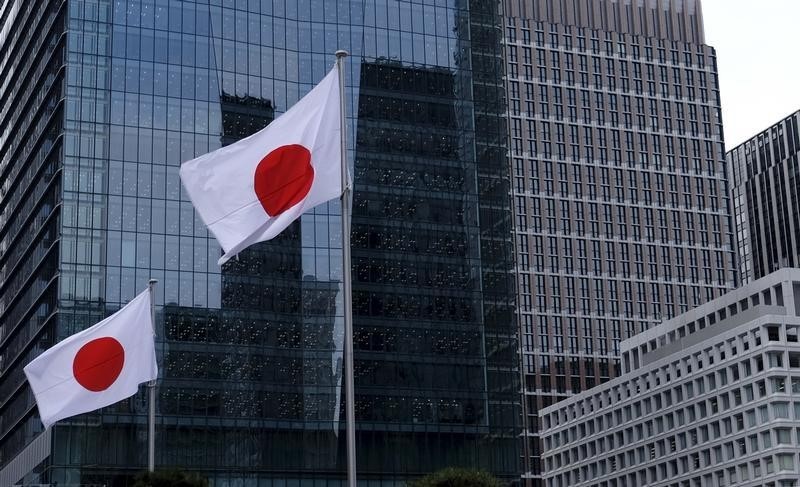By Leika Kihara
TOKYO (Reuters) - Japan's wholesale prices declined at the fastest annual pace in nearly four years in April, adding to fears the country may slip back into deflation as the coronavirus pandemic wreaks havoc on the world's third-largest economy.
While falling raw material costs could offer some relief for retailers whose sales have been hit by the health crisis, it will likely push consumer inflation further away from the Bank of Japan's elusive 2% target.
The corporate goods price index (CGPI), which measures the price companies charge each other for their goods and services, slumped 2.3% in April from a year earlier, worse than a median market forecast for a 1.6% drop, BOJ data showed on Friday.
It was the biggest decline since November 2016 and followed a 0.4% fall in March, with the decline blamed mostly on slumping oil and nonferrous metal costs, the data showed.
Domestic final goods prices, which loosely track the consumer price index, fell 2.5 percent from a year earlier, the data showed.
Japan's economy is on the cusp of a deep recession as the pandemic has paralyzes business activity and global trade. The country has reported close to 16,000 coronavirus infections and over 650 deaths.
The BOJ expanded monetary stimulus for the second straight month in April, ramping up risky asset purchases and pledging to buy unlimited amounts of government bonds to cushion the economic blow from the pandemic.
